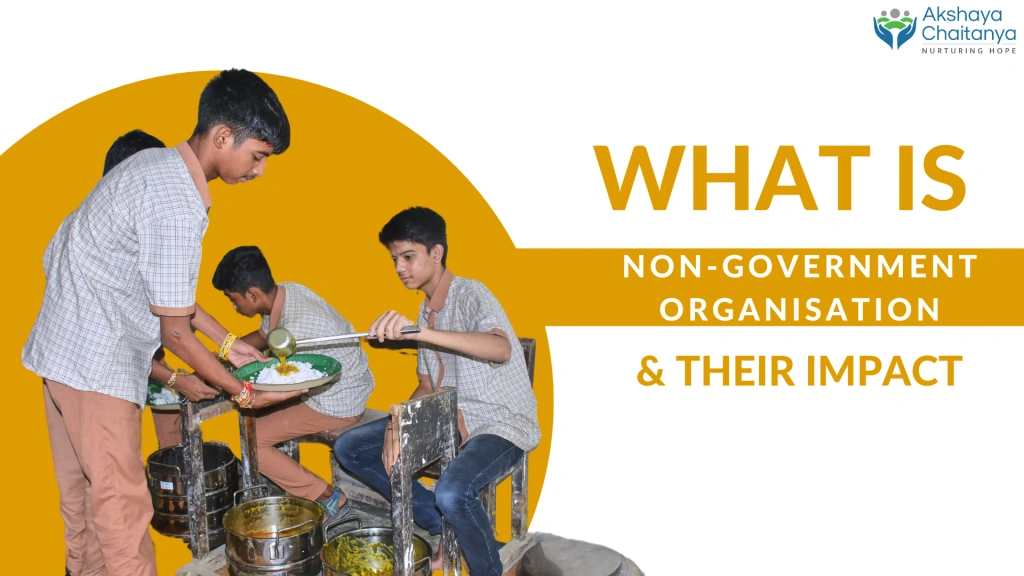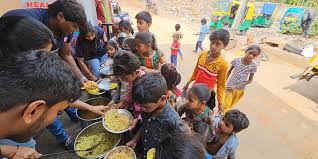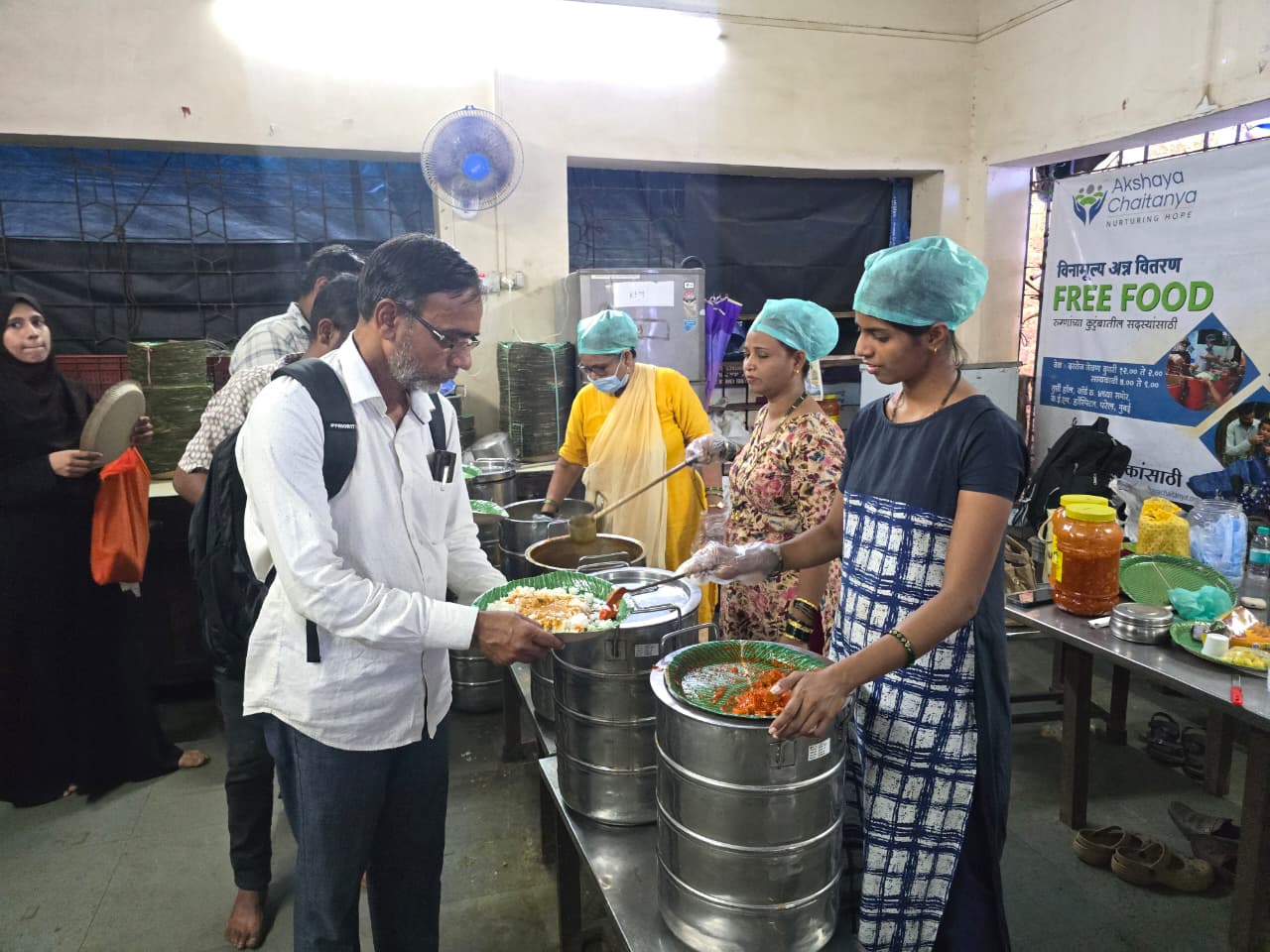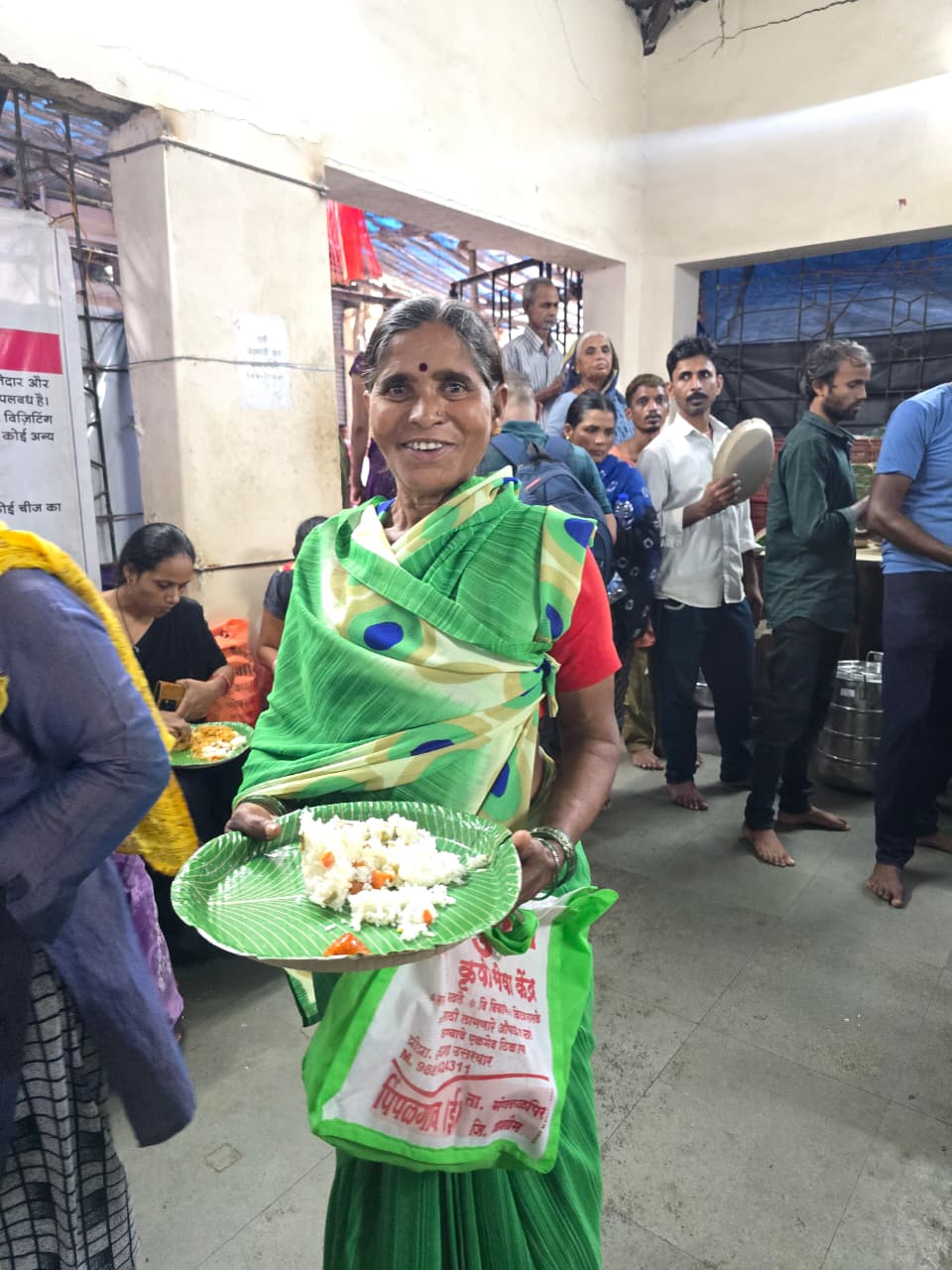What is a Non-Government Organisation (NGO)? — Understanding Their Role & Importance in India and Beyond
POSTED ON December 23, 2025 BY AKSHAYACHAITANYA

Introduction
A Non‑Governmental Organization (NGO) is more than just a “non-profit group” — it is often the heartbeat of social change, community support, and humanitarian action. Whether it's feeding hungry children, educating underprivileged communities, supporting patients, or protecting the environment, NGOs step in where help is needed most.
In India — one of the most populous countries facing diverse social challenges — NGOs play a pivotal role in bridging gaps left by government systems. From tiny local trusts to nationwide foundations, NGOs form a vital part of civil society. This article explains what NGOs are, how they are structured, what they do, and why they matter — especially for individuals seeking ethical, impactful ways to contribute.
What Exactly Is an NGO? (Definition & Origins)
- The term “NGO” was first formally adopted in Article 71 of the United Nations (UN) Charter in 1945. (Wikipedia)
- According to the UN’s definition: an NGO is “a not-for-profit, voluntary citizens’ group organized on local, national or international levels to address issues in support of the public good.” (Wikipedia)
- In broad terms, NGOs are independent of government control, though they may receive government grants or international funding. (Wikipedia)
Key Characteristics of NGOs:
- Not established by a government (though they may collaborate).
- Organized voluntarily by individuals or groups.
- Primarily driven by a social, humanitarian or environmental mission rather than profit.
- Operate at different scales: local/community, national, or international. (Drishti IAS)
In India, NGOs may be registered under different legal frameworks — as charitable trusts, registered societies, or Section 8 companies under the Companies Act. (VISION IAS)
Why NGOs Matter — Their Critical Role in Society
1. Filling Gaps Left by Government & Market
Many government welfare schemes operate on a macro level, and private enterprises focus on profitability. NGOs, by contrast, often operate on micro-levels, reaching remote villages, urban slums, marginalized communities, and overlooked segments of society. They provide services where neither public nor private sectors reach — education, nutrition, health, rehabilitation, child welfare, environmental protection, and more. (learning.candid.org)
2. Promoting Social Justice, Equity & Advocacy
NGOs give voice to the voiceless. They advocate for social change, human rights, environmental sustainability, gender equality, and inclusive development — often challenging systemic inequities and raising awareness for important social issues. (learning.candid.org)
3. Disaster Relief & Humanitarian Aid
During crises — natural disasters, pandemics, health emergencies — NGOs often respond faster and more effectively than larger bureaucratic systems. Their grassroots presence and flexible structure enable rapid mobilization and relief work. (Funds for NGOs)
4. Education, Empowerment & Long-Term Social Change
Many NGOs focus on education, vocational training, skill development, child welfare and community empowerment. Over time, such efforts lead to sustainable social upliftment — breaking cycles of poverty and ignorance. (www.slideshare.net)
5. Innovation & Community Participation
Because they are nimble and often close to the ground realities, NGOs can experiment with innovative models — community kitchens, mobile health camps, social entrepreneurship, awareness drives — and engage local communities directly. This fosters ownership and long-term community resilience. (webmakers.expert)
Types of NGOs — Based on Structure & Function
NGOs come in diverse forms. Some common classifications:
A. By Legal/Formal Structure
- Charitable Trusts — Typically run by trustees managing assets or funds for charitable causes.
- Registered Societies — Member-based organizations registered under Societies Registration Act.
- Section 8 Companies (Non-Profit Companies) — As per Companies Act, for cultural, social, scientific, charitable promotion without profit distribution. (VISION IAS)
B. By Activity / Cause / Scope
- Community-Based or Local NGOs — Small-scale, grassroots organizations focused on community-level issues (poverty, education, health). (Drishti IAS)
- National NGOs — Operating across multiple states, often handling large-scale programs (health, disaster relief, child welfare).
- International / Global NGOs — Working across countries, often focusing on global issues like human rights, environment, poverty alleviation. (Encyclopedia Britannica)
- Advocacy & Policy NGOs — Focus on awareness, rights, policy influence rather than direct service.
Common Functions & Activities of NGOs
NGOs perform a range of activities. Some typical areas are:
- Education & Literacy Programs, running schools or learning centers. (www.slideshare.net)
- Health and Nutrition, especially in underserved communities — feeding programs, health camps, awareness. (learning.candid.org)
- Disaster Relief & Rehabilitation, supporting victims of natural disasters or crises. (Funds for NGOs)
- Child Welfare & Protection, orphanages, shelters, support for vulnerable children. (Wikipedia)
- Environmental Conservation & Sustainability, protecting natural resources, promoting sustainable development. (Encyclopedia Britannica)
- Community Development & Empowerment, self-help groups, vocational training, women empowerment. (Unacademy)
- Advocacy & Awareness, human rights, social justice, civic engagement, policy-level interventions. (learning.candid.org)
NGO Challenges & Why Sustainability Matters
While NGOs occupy a critical space in social development, they also face multiple challenges:
- Funding & Financial Sustainability — Relying on donations, grants, government aid or international funding. Irregular inflows can hamper long-term planning.
- Transparency & Accountability — Donors increasingly demand proof of impact, audited accounts, and transparency.
- Operational Limitations — Reaching remote areas, scaling programs, managing logistics, maintaining volunteer base.
- Regulatory & Compliance Issues — In many countries (including India), NGOs must comply with laws regarding registration, tax-exempt status (e.g., 80G/12A), foreign funding regulations, etc. (VISION IAS)
- Public Trust & Oversight — Due to misuse or misreporting by some groups, public trust can be fragile, making genuine NGOs’ work harder.
That’s why sustainability — financial, operational, and ethical — becomes crucial for long-term impact.
Why NGOs Like Akshaya Chaitanya Matter — Our Unique Commitment
At Akshaya Chaitanya, we’re more than just a charity — we’re committed to transforming small acts of kindness into sustainable change. Here’s what differentiates us:
- Focused Mission on Food & Nutrition: We run feeding initiatives for underprivileged children, school students, hospital patients’ families and poor communities — because nourishment is fundamental to dignity and well-being.
- Transparent Donation System: Every donation is traceable. Donors receive proper documentation (including 80G tax-exemption certificates), and we provide impact reports to show where meals reach.
- Local Presence & Government Collaboration: With a kitchen in Mumbai, partnerships with schools and hospitals, and compliance with regulatory frameworks, we combine grassroots action with professional accountability.
- Sustainable & Scalable Model: By focusing on repeatable feeding programs, community kitchens, and partnerships — we strive to deliver long-term relief, not just one-time help.
In short, by working with us, donors don’t just contribute once — they become part of an ongoing movement for dignity, food security and social justice.
How to Choose a Genuine NGO — Key Questions to Ask
If you want to donate to or collaborate with an NGO, here are simple checks to ensure legitimacy and impact:
- Is the NGO registered and legally compliant (Trust, Society or Section 8 company)?
- Does it provide tax-exempt receipts (like 80G / 12A in India)?
- Are annual reports, audits and impact stories publicly available?
- Does the NGO clearly explain its mission, beneficiaries, and distribution processes?
- Is there a transparent donation mechanism (online, bank transfer, acknowledgment)?
- Does the NGO focus on sustainable, long-term initiatives rather than one-off events?
- Are there real on-ground operations or local presence, not just digital presence?
Genuine NGOs prioritize transparency, accountability and real impact — that’s how your donation truly becomes a difference.
The Future of NGOs in India & The World
The role of NGOs is evolving. In the face of growing social, economic and environmental challenges — from poverty, urbanization, climate crisis to health emergencies — NGOs are becoming more important than ever.
Key trends include:
- Collaborative Models: Partnerships with government, corporates (CSR), and international donors for larger impact.
- Digital Fundraising & Transparency: Use of online donation portals, real-time impact sharing, digital audits — building trust and widening reach.
- Community-Led & Grassroots Movements: Empowering local communities for self-sustainable development rather than top-down aid.
- Specialized Sectoral NGOs: Focused on nutrition, health, environment, education, child rights — concentrating resources on critical issues.
For donors and support-seekers alike, this evolution means more choice, accountability and potential to make meaningful change.
Frequently Asked Questions (FAQ)
- What is the basic full form of NGO?
NGO stands for Non-Governmental Organization. It denotes voluntary, non-profit citizen groups working independently from the government to address societal, humanitarian or environmental issues. (BYJU'S) - Can NGOs receive government funding or grants?
Yes. While NGOs are independent, many receive funding or grants from government programs, private foundations or international agencies. However, their operational independence and transparency must remain intact. (Investopedia) - What legal forms can an NGO take in India?
In India, NGOs can be registered as charitable trusts, registered societies (under Societies Registration Act 1860), or as Section 8 non-profit companies under the Companies Act. (VISION IAS) - How do NGOs sustain their work financially?
Through a combination of individual donations, corporate CSR contributions, grants, international funding, government support, and membership fees. Long-term sustainability depends on diversified funding and transparent practices. (Funds for NGOs) - What kind of work do NGOs do?
NGOs work in areas like education, health & nutrition, disaster relief, community development, child welfare, environment, advocacy, and social justice. (learning.candid.org) - How to check if an NGO is genuine?
Check their registration status, availability of audit reports, transparent donation receipts (like 80G in India), clear mission statements, feedback or impact reports, and real on-ground presence. - Are all NGOs the same as Non-Profit Organisations (NPO)?
NGOs are a subset of NPOs. While NPO broadly includes any organization working without profit motive, NGOs specifically focus on social causes and are independent of government. (cmu.edu) - Can I volunteer at an NGO or donate online?
Yes — many NGOs allow volunteer participation and offer secure online payment gateways for donations. Always ensure transparency and request receipts before donating. - How impactful are NGOs compared to governmental programs?
NGOs often reach underserved, remote or marginalized populations swiftly, and can innovate or adapt faster than large bureaucratic systems. Their grassroots presence frequently complements governmental efforts. - Is donation to an NGO tax-deductible?
In many jurisdictions (like India), donations made to eligible NGOs registered under relevant tax-exemption laws (such as 80G/12A) are tax-deductible — subject to official certification.
Conclusion — NGOs Are More Than Organisations; They Are Engines of Hope
In a world where challenges range from hunger and poverty to inequality and environmental crisis, NGOs like Akshaya Chaitanya serve as bridges of compassion, engines of social change, and pillars of community hope.
By understanding what NGOs are, how they operate, and why they matter — you empower yourself to become part of the change. Whether you donate, volunteer or simply spread awareness — every act counts.
If you believe in dignity, equality and shared humanity — consider supporting a genuine NGO. Because communities rise when we uplift each other.


